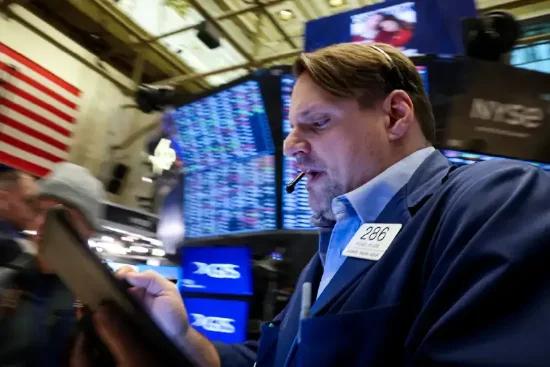
On February 28, 2025, the US stock market experienced a significant wave of volatility, with all three major stock indices closing down. The Dow Jones Industrial Average fell 0.45% to close at 43239.5 points; The S&P 500 index fell 1.59% to close at 5861.57 points; The Nasdaq Composite fell sharply by 2.78% to close at 18544.42 points.
Recently, the financial reports and profit expectations of some important companies have had a significant impact on the stock market. For example, HP's earnings outlook for this quarter fell short of analysts' expectations due to rising component costs, causing its stock price to remain relatively stable in after hours trading but overall market sentiment to be affected. In addition, as a technology giant, NVIDIA's stock price has also dropped significantly by over 8%, becoming one of the key factors leading the decline of the Dow Jones Industrial Average. The poor performance of these enterprises reflects multiple pressures such as rising supply chain costs, intensified market competition, and a global economic slowdown.
In terms of macroeconomic data, the revised GDP for the fourth quarter of the United States and the annual core PCE price index for January have attracted much attention. If the GDP correction value is lower than expected, it will imply a cooling of the economy, which may strengthen the expectation of the Federal Reserve cutting interest rates and be positive for the stock market. The performance of actual data is often complex and variable, and investors need to closely monitor its dynamic changes. Meanwhile, as the core inflation indicator that the Federal Reserve is most concerned about, the changes in the core PCE price index will directly affect the market's expectations of the Federal Reserve's monetary policy. If the year-on-year growth rate is lower than expected, it will strengthen the expectation of interest rate cuts and drive the stock market up; On the contrary, it may cause market concerns and lead to a decline in the stock market.
Geopolitical risk is also one of the important factors affecting the stock market. Recently, tensions in the Middle East, the Russia-Ukraine conflict, and trade relations between the United States and other countries have all had different effects on the stock market. These risk factors increase market uncertainty, leading to cautious investor sentiment and intensified stock market volatility.
The policy dynamics of the Federal Reserve have always been the focus of market attention. On Friday of this week, the wording of Federal Reserve Chairman Powell during a congressional hearing will have a significant impact on the stock market. If its wording leans towards dovish (such as mentioning "controllable inflation"), it may drive the stock market to rise rapidly; If the emphasis is on 'data dependent decision-making', the market response may be relatively neutral. In addition, recent speeches and statements by Federal Reserve officials have also had a significant impact on market expectations. For example, the President of the Kansas City Federal Reserve stated that the Fed may need to balance growth concerns with inflation risks, which increases market uncertainty about future monetary policy.
In my opinion, the current decline in the stock market is not an accidental phenomenon, but the result of multiple factors working together. Firstly, the poor profit expectations of enterprises reflect practical problems such as rising supply chain costs and intensified market competition, which are difficult to effectively solve in the short term. Secondly, the uncertainty of macroeconomic data increases market volatility, making it difficult for investors to form stable expectations. Furthermore, the continued existence of geopolitical risks exacerbates market uncertainty, leading to cautious investor sentiment. Finally, the policy dynamics of the Federal Reserve have had a significant impact on market expectations, but their statements are often complex and varied, increasing the difficulty of market interpretation.
With the gradual recovery of the global economy and the improvement of trade relations, the market is expected to gradually emerge from its current predicament. Meanwhile, with the continuous advancement of technological innovation and the rapid development of emerging industries, the stock market will usher in more investment opportunities and challenges. Therefore, investors should maintain a positive attitude, flexibly respond to market changes, and seek long-term stable investment returns.

Since 2022, the Fed has cumulatively reduced its balance sheet by $2.4 trillion through quantitative tightening (QT) policies, leading to a near depletion of liquidity in the financial system.
Since 2022, the Fed has cumulatively reduced its balance sh…
On December 11 local time, the White House once again spoke…
Fiji recently launched its first green finance classificati…
Recently, the European Commission fined Musk's X platform (…
At the end of 2025, the situation in the Caribbean suddenly…
The U.S. AI industry in 2025 is witnessing a feverish feast…